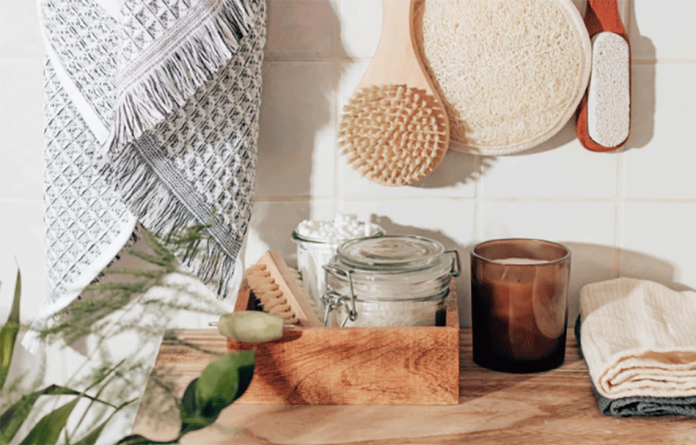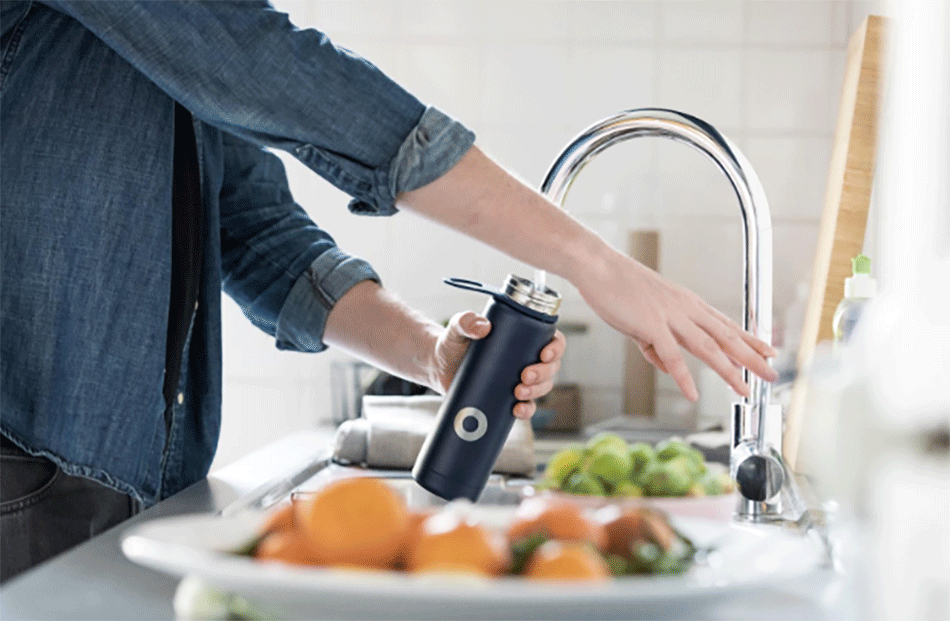By Megan Isola
Your home is filled with products; some are sustainable, and others aren’t. Unfortunately, we live in a world where most things are plastic and produce waste. Meanwhile, others are bad for our health and the environment. As more people become conscious of how their choices affect the world around them, including the environment, companies are choosing to create products that reduce waste in your life and impact on the environment. Using green household products can reduce your carbon footprint by reducing your home’s single-use products and harmful chemicals. Here are some of the best green household product alternatives:
Compostable Pet Waste Bags
You should always pick up after Fido on a walk, and not just because it’s the right thing to do. Dog poop contains disease-causing bacteria and parasites that can contaminate soil, water, and other objects. This bacteria can harm pets and people, spreading diseases through contact. It can also kill grass and upset the delicate balance of wild animals’ environments.
You likely use a plastic bag when you pick up your dog’s droppings. Unfortunately, plastic doesn’t break down quickly and is one of the least sustainable materials. Instead of using plastic bags, consider compostable waste bags that break down easily and won’t contribute to landfills.
Reusable Dish Towels
Many people use paper towels to wash their dishes, but these single-use options only contribute to waste. Using reusable dish towels can help reduce your reliance on paper towels because you can throw them into the washing machine whenever they’re dirty. You can also put sponges into the dishwasher after a few uses, and they shouldn’t break down.
Reusable Shopping Bags
Where’s one place you see tons of plastic bags? The grocery store. Instead of using plastic bags provided by stores, consider taking your reusable shopping bags with you to cut down on your use of plastic bags. You can use reusable bags when shopping for anything, including clothes. So whether you’re going to the local shop for milk or the mall for a shopping spree, consider bringing reusable bags to prevent waste.
Rechargeable Batteries
There are special instructions for battery disposal. Unfortunately, most people simply toss them into the trash and forget about them. The problem is that batteries are made from chemicals, which can be toxic and cause water and soil pollution when tossed in the trash and taken to a landfill. Instead of throwing your batteries away all the time, consider using rechargeable ones that prolong their lives and can reduce your carbon footprint.
Reusable Water Bottles
Instead of buying plastic water bottles whenever you’re at the grocery store, consider using a reusable water bottle you can fill up any time and take with you on the go. Even though you’d like to believe you recycle your water bottles through the various recycling programs, most people don’t, leaving a large percentage of plastic water bottles in landfills yearly.
Instead of contributing to landfills by drinking tons of bottled water daily, purchase a reusable water bottle and fill it up every time you leave the house.
Sustainable Clothing
The fashion industry is one of the least sustainable because many people discard clothes they no longer want instead of donating them. Unfortunately, no clothing can be truly sustainable because it won’t break down over time, but many fashion brands are making more sustainable choices regarding their production processes.
You can invest in sustainable clothing brands by learning more about their operations, including water and chemical usage, to determine whether a brand is as sustainable as they claim to be.
Homemade Cleaning Supplies
An easy swap you can make at home is swapping your chemical cleaners for more natural ingredients, such as vinegar, rubbing alcohol, and biodegradable soap. Homemade cleaning supplies work just as well as chemical supplies but are cheaper and safer for your family and the planet.
Packaging-Free Beauty Products
Beauty products commonly use massive amounts of plastic for packing. Consider how many shampoo bottles you buy and throw out every year. Your shampoo, conditioner, lotion, body washes, and cleansers come in plastic bottles that contribute to landfills. However, many brands offer more sustainable solutions, such as plastic-free packaging. For example, you can use shampoo and conditioner bars instead of traditional shampoo and conditioner that comes in bottles.
Reusable Straws
If you’re someone who always starts their day with a cold brew, consider buying reusable straws instead of using plastic straws from your local coffee shop. Plastic straws are a single-use plastic issue, and millions of plastic straws are used daily. While many cities try to ban plastic straws to reduce waste, you can take action at home by switching to reusable straws made from silicone, stainless steel, glass, or bamboo.
Wax Food Wraps
Cling wrap is plastic and contains chemicals that can contaminate water and food. Instead of plastic cling wrap, consider using wax cloth wraps made from beeswax to keep your food fresh. Unlike cling film, these natural food wraps don’t contain chemicals that can seep into your food and harm your health. The best part? They’re completely biodegradable.
Reusable Coffee Cups
Reusable coffee cups can prevent paper cups that can’t be recycled from ending up in landfills. Unfortunately, many people opt to get their coffee from a local shop instead of making it at home, and they may feel embarrassed about asking for their coffee to be served in a reusable cup. However, most local coffee shops will gladly fill a reusable cup with your beverage to prevent waste. Some cafes may even offer discounts for using your own cup because you’re technically saving them money.
Sustainable Alcohol
You’d be surprised to learn that most market wines are not vegetarian or suitable for the environment. Various alcohol-producing methods utilize animal byproducts. These animal products contribute a large portion of the world’s methane emissions. Additionally, we use many other limited resources, such as water, to produce alcoholic beverages. On average, it takes about 148 liters of water to cultivate one bottle of beer or glass of wine. Because of the effects alcohol production can have on the environment, it’s crucial to look for eco-friendly options if you enjoy your glass of wine at night. Many companies are making it their mission to produce sustainable spirits. These companies utilize various methods to lower the impact their manufacturing processes bear on the environment. Some of these products minimize water usage in their production or make their products by using carbon dioxide. Whether you like your glass of wine, old-fashioned,a mixed cocktail with vodka, or a nice cold beer after a long day, you can find a sustainable option to get your fix.
Sustainable Household Products
Consider the single-use products in your home and find alternatives you can use more than once. Things like paper plates, cups, and plastic utensils can be replaced with items that last for years, reducing your carbon footprint and helping you make better choices for the planet and all its inhabitants. Reusable household items are the easiest way to become more sustainable and can even save you money in the long run.
About the Author
 Megan Isola holds a Bachelor of Science in Hospitality and a minor in Business Marketing from Cal State University Chico. She enjoys going to concerts, trying new restaurants, and hanging out with friends.
Megan Isola holds a Bachelor of Science in Hospitality and a minor in Business Marketing from Cal State University Chico. She enjoys going to concerts, trying new restaurants, and hanging out with friends.



































